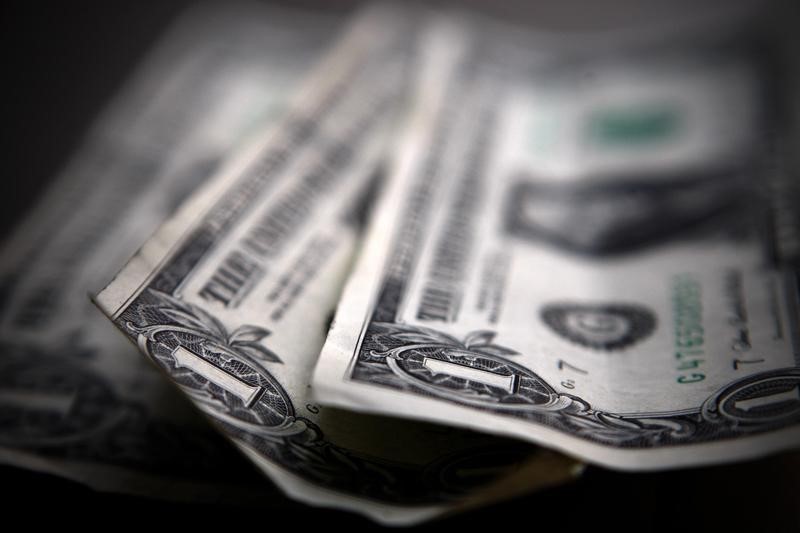By Gina Lee
Investing.com – The dollar was down on Monday morning in Asia, nursing the previous week’s losses and set for its first monthly drop in five months. Investors have reduced bets that rising U.S. rates will drive further gains and as fears of a global recession have subsided a little.
The U.S. Dollar Index that tracks the greenback against a basket of other currencies was down 0.23% to 101.27 by 1:32 AM ET (5:32 AM GMT).
The USD/JPY pair inched down 0.09% to 127.
The AUD/USD pair was up 0.28% to 0.7180 and the NZD/USD pair was up 0.26% to 0.6551.
The USD/CNY pair fell 0.75% to 6.6483 while the GBP/USD pair edged up 0.19% to 1.2640.
Data due throughout the week could also provide hints on the global economic outlook. China’s manufacturing and non-manufacturing purchasing managers indexes, alongside the Eurozone consumer price index, are due on Tuesday. The U.S. will release its May employment report, including non-farm payrolls, on Friday.
Markets are lightly to be light on Monday, with U.S. stock and bond markets closed for the Memorial Day holiday. The dollar was a fraction weaker against the euro at $1.0728 earlier in the Asian session, just above a five-week low, after falling about 1.5% on the single currency during the previous week.
The riskier Australian and New Zealand dollars firmed early in the Asia session, after a Friday rally, while the yen was slightly weaker at 127.28 per dollar. The Antipodean currencies were both near a three-week high.
"The dollar can fall further this week. Were it not for China's lockdown, the global outlook would be brighter, and the dollar lower," Commonwealth Bank Of Australia head of international economics Joe Capurso told Reuters.
The dollar index, which hit a two-decade high of 105.010 earlier in the month, steadied on Monday while the pound held the previous week's gains.
The Chinese yuan held steady in offshore trade, boosted by the potential easing of COVID-19 measures in some cities. Shanghai said on Sunday "unreasonable" curbs on businesses will be removed from June 1, 2022, while Beijing reopened parts of its public transport as well as some malls.
Although other investors are wary of calling an outright end to the recent dollar strength, positive U.S. consumer data and the easing lockdowns in China are improving sentiment about global growth.
Investors are already betting that the U.S. Federal Reserve, once it has hiked interest rates aggressively over the next two months, could take a pause afterward.
"The Fed has stopped short of validating calls for even more tightening, leading to a plateau in forward expectations," NatWest (LON:NWG) Markets global head of desk strategy John Briggs told Reuters.
Meanwhile, cryptocurrencies continued their downward trend and bitcoin has struggled to regain losses made during a broad sell-off of risk assets at the start of the month.
